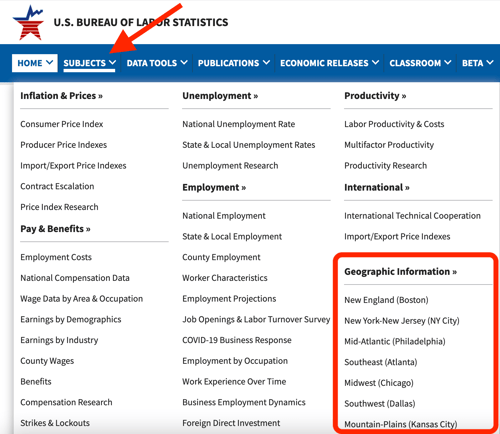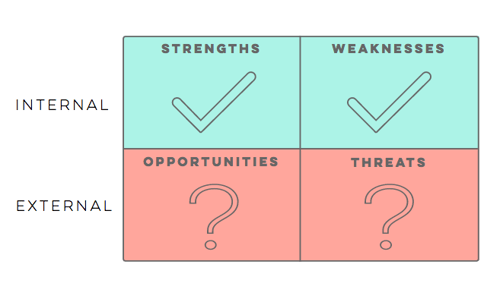 Crayon's Product Marketing Spotlight is an interview series where we chat with product marketers to get a glimpse into their careers and gain unique insight into product marketing strategy. In this edition of Product Marketing Spotlight Series, we shine the light on Nikos Drakatos, Director of Product Marketing at Adthena.
Crayon's Product Marketing Spotlight is an interview series where we chat with product marketers to get a glimpse into their careers and gain unique insight into product marketing strategy. In this edition of Product Marketing Spotlight Series, we shine the light on Nikos Drakatos, Director of Product Marketing at Adthena.
ED: What is your role?
ND: I’m the Director of Product Marketing at Adthena, leading the product go-to-market efforts of the company. My responsibilities include defining our corporate, product, and solution messaging and positioning strategies while keeping an eye on our competitors’ strategies and market trends to ensure we stay relevant and at the heart of our target audience.
ED: What does the company do?
ND: Adthena is the world’s most advanced search intelligence platform for paid search advertising. At Adthena, we utilize the latest technologies alongside our patented machine and deep learning models to build great products that don’t exist in the world yet. Through our rich market and competitive intelligence data we hold for the search advertising industry, we enable marketers to efficiently deliver the right ad to the right consumers, at the right time, and for the right price thanks to our Whole Market View and Smart Monitor technologies.
ED: Tell me a little bit about your career path. Did you always know you wanted to be in Product Marketing? What led you to become a Product Marketing leader?
ND: I started my career as a Creative Marketing Associate for a global Mobile Marketing & Advertising company building custom propositions and solutions for brands and agencies. I had just graduated with an MSc in Marketing, and this role allowed me to apply my creativity while working closely with the product teams building those custom-made solutions.
I spent about three years in this role before realizing what Product Marketing was, and that we had a PMM team in our offices in San Francisco. I joined the team in California and helped them scale across multiple product categories, including mobile payments and ad serving.
I then moved to London, where I joined PubMatic as a Product Marketing Manager for the EMEA entity, where I learned all about the programmatic advertising industry from a publisher’s perspective, before making a jump to Criteo where I spent over three years marketing products to advertisers and publishers.
The one common theme throughout my career, from my early days till now, is the passion to turn complex specs into data-driven stories for my target audience. I’ve been fortunate enough in my career to work in companies featuring unique technologies that motivate me to build powerful positioning strategies.
ED: How much of your day-to-day involves competitive intelligence?
ND: A very large part. As I mentioned, I have to constantly be on top of my market and my competitors to inform our strategies across the organization. Even more so now, where I’m leading the entire product portfolio for Adtehna from a marketing point of view.
What’s important in competitive intelligence, is not to simply track the facts you’re able to capture online. It’s how we’re able to piece the various stories together to understand the logic and strategy behind our competitors’ moves. And that only comes when you are constantly on top of your market. And this is the reason why I’m a big fan of Crayon and introduced it to the team when I first joined.
ED: How do you build relationships cross-functionally within your organization?
ND: I see Product Marketing as the creative midfielder of the team (or a quarterback in American football) taking a product that needs to be delivered to the sales and marketing teams efficiently for the team to be more effective in their jobs. On a daily basis, I work closely together with my peers in Product, Engineering, and UX, while I see Sales, Marketing, and Customer Success as my customers, providing them with the right tools and messages to go to market. To maintain the balance, I have regular catch ups with my stakeholders across all departments, making sure we have a healthy workflow.
ED: How do you measure product marketing success?
ND: This is the $1B question. It really depends on the company size, industry, and the team’s focus. Most recently I measure success based on messaging and asset adoption by the sales teams. I hold regular training sessions followed by assessments, so I also measure success based on pass rates.
However, interestingly, I have recently been able to design and build a dashboard that allows the team to measure success according to the impact we have on win and retention rates, which I believe are very powerful metrics to measure success in any role.
ED: What are your top three product launch tips?
ND: There’s no specific recipe for success when launching products in the market. There are many parameters that can positively or negatively influence a product launch, so it’s hard to generalize.
However, if I had to pick three tips, I’d focus on:
- Know your audience. Do your due diligence and understand who you are speaking to. Don’t generalize and make sure you research their needs across markets. It’s one thing to market to Americans, and completely different marketing to English, French, and Germans. In other words, make sure you’re relevant.
- Differentiate your messaging. Research your competition and make sure your USPs stand out from the crowd. But be careful because it’s easy to fall into the “competitive differentiator” trap where we list USPs that nobody understands or has a need for. If that unique feature your product team built makes you excited, make sure it makes your customer equally excited before marketing it.
- Pick the right time. Out of the three, I feel this is the most important tip. I don’t believe you should be launching your products as soon as they get released. Do some research and find out when would be the right time in your industry and study your target audiences’ buying patterns. And I’ll go so far as to say that it’s best when we choose and stick to a certain period to do our launches in. That way, as we grow bigger, we build up anticipation for our customers and the industry. See Apple for example.
ED: Product Marketers have a lot of different responsibilities. How do you prioritize what to focus on?
ND: I try to align the projects we work on based on the business priorities for the quarter and effort required by our team. I developed a PMM dashboard that has actually helped the team be more focused and have the difficult conversations of pushing something back to next quarter if the priority is not right.
ED: What’s the best career advice you’ve ever received?
ND: A manager once told me that whenever I learn about a new product, read something, or write my own messaging, I should always ask, “Why do I care?”. Asking that simple question has helped me see things in a different light. If the answer I get is not good enough, I’ll ask again until the value that I’m trying to get out of that piece of information is crystal clear.
ED: What’s the best book you’ve read recently? It can be work or non-work related!
ND: I love a good, crime-investigation novel. Currently, I’m going through the Harry Hole book series.

Related Blog Posts
Popular Posts
-
 The 8 Free Market Research Tools and Resources You Need to Know
The 8 Free Market Research Tools and Resources You Need to Know
-
 24 Questions to Consider for Your Next SWOT Analysis
24 Questions to Consider for Your Next SWOT Analysis
-
 6 Competitive Advantage Examples From the Real World
6 Competitive Advantage Examples From the Real World
-
 How to Measure Product Launch Success: 12 KPIs You Should Be Tracking
How to Measure Product Launch Success: 12 KPIs You Should Be Tracking
-
 How to Create a Competitive Matrix (Step-by-Step Guide With Examples + Free Templates)
How to Create a Competitive Matrix (Step-by-Step Guide With Examples + Free Templates)




